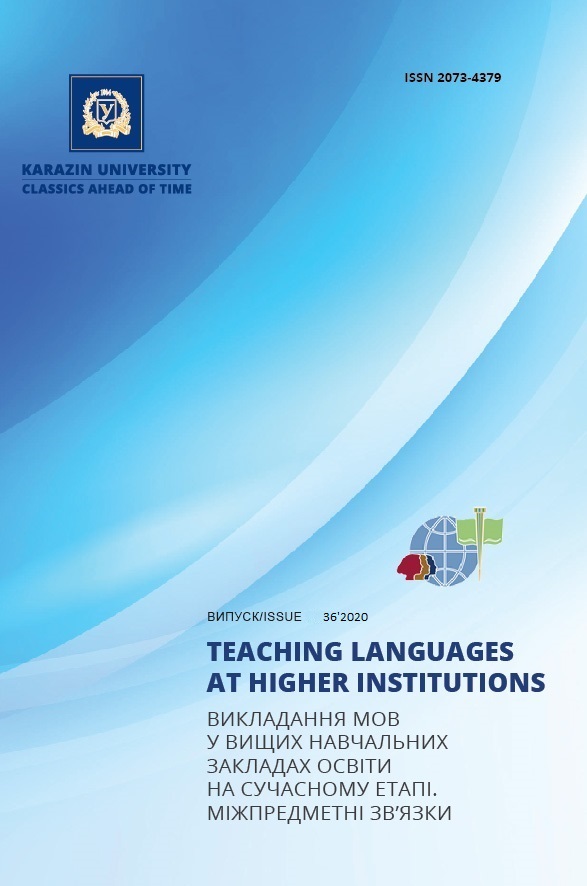Інсценування як засіб розвитку комунікативних навичок
Анотація
Стаття присвячена аналізу вправ з інсценування як засобу розвитку комунікативних навичок студентів на різних етапах занять з іноземної мови. Інсценування розглядається як важлива складова інтерактивних ігор. Показано, що потреба в інтерактивних іграх, які містять інсценування, постійно зростає, змушуючи викладачів використовувати нові методики та навчальні стилі. Вправи із інсценування можуть бути ефективним засобом формування та розвитку лінгвістичних навичок. Показано, що всі види вправ, що містять елементи театральної гри, можуть допомогти викладачам створювати комунікативні ситуації, які є близькими до реального життя. Інсценування коротких діалогів на початковому та елементарному рівні навчання може бути діючим засобом засвоєння нових граматичних структур. Навчальний формат Тріада, впроваджений Н. Маківером, може бути корисним для груп, що містять студентів із різним рівнем володіння мовою.
Стаття свідчить про те, що мовний матеріал, який використовується для вправ з інсценування, може бути розподілено на дві групи – реальний та уявлюваний або драматичний. Приклади з повсякденного досвіду можуть бути використані для створення знайомих студентам комунікативних ситуацій. Ситуації, близькі до реального життя, можуть комбінуватися з уявлюваними або драматичними компонентами. Інсценування відомих картин та пісень становить іще одну групу комунікативних вправ, придатних для студентів усіх рівнів володіння мовою. Показано, що відкриті, довготривалі вправи з інсценування сприяють збільшенню креативності та мотивації та водночас надають можливість розвивати гнучкість у використанні іноземної мови.
Запропоновано низку вправ з інсценування, які можуть бути легко адаптовані до будь-якого виду мовного матеріалу та навчального формату.
Завантаження
Посилання
Hadfield, J. (2006). Classroom Dynamics. Cambridge: Cambridge University Press [in English].
Klippel, F. (1984). Keep Talking. Cambridge: Cambridge University Press [in English]
Lutzker, P. (2015). Practicing creative writing in high school foreign language classes. Creativity in the English language classroom. London. British Council, pp. 134−142 [in English].
McIver, N. How do I organize my students into groups. Inozemni Movy [Foreign Languages]. Kyiv, 4, pp. 22−23 [in English].
Moor, P. (2006). A Task-based approach to oral work. Reading in Methodology. Cambridge University Press, pp. 24−31 [in English].
Nation, P. (2006). Speaking activities: five features. Reading in Methodology. Cambridge University Press, pp. 100−123 [in English].
Rodney, H. (2017). Creativity in Language Teaching. New York: Routledge [in English].
Sciamarelli, M. (2015). Teaching children with mascot-inspired projects. Creativity in the English language classroom. London. British Council, pp. 104−115 [in English].
Stepanek, L. (2015). A Creative approach to language teaching; a way to recognize, encourage and appreciate students’ contributions to language classes. Creativity in the English language Classroom. London. British Council, pp. 98−104 [in English].
Woodland, S. (1997). Fun with Grammar. Communicative activities for Azar Grammar Series. London: Prentice-Hall International Limited [in English].
Wright, A. (2006). Games for Language Learning. Cambridge University Press [in English].

